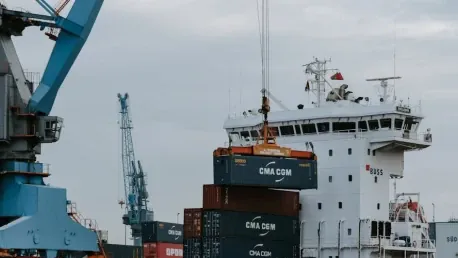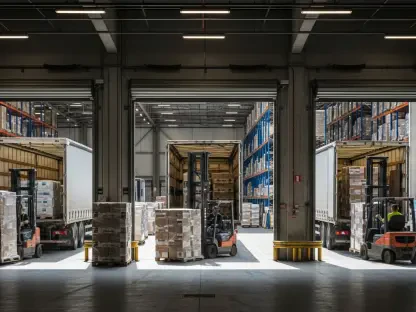The launch of the new FEM1 shipping service at Jeddah Islamic Port marks a significant milestone in advancing Saudi Arabia’s position within global maritime networks. This service, created through a collaboration between the Saudi Ports Authority (Mawani), CStar Shipping Company, and United Global Logistics (UGL), highlights the Kingdom’s commitment to enhancing its logistic infrastructure. By strengthening the connectivity between Jeddah Port and key global ports such as Qingdao, Shanghai, Ningbo, Nansha, Kelang, and Istanbul, FEM1 plays a crucial role in Saudi Arabia’s National Strategy for Transport and Logistic Services. The aim here is clear: to make the Kingdom a global logistics hub connecting Europe, Asia, and Africa. This strategic alignment not only boosts Saudi Arabia’s exports and imports but also underscores its ambition to dominate international maritime routes.
Strategic Enhancement of Port Connectivity
The introduction of the FEM1 shipping service directly responds to the pressing need for advanced logistics solutions to support Saudi Arabia’s ambitious economic goals. With a capacity of 2,758 standard containers, this service stands to firmly establish Jeddah Islamic Port as a pivotal gateway on the Red Sea coast. This positioning benefits international trade significantly by reducing transit times and creating more direct shipping lanes. As the Red Sea is a critical artery for global maritime traffic, improvements in this region’s connectivity have far-reaching implications. By strategically linking Jeddah to major ports in China, Malaysia, and Türkiye, FEM1 provides a vital competitive edge for importers and exporters, making Jeddah an indispensable node in global supply chains.
Moreover, the service’s launch also indicates the growing importance of Jeddah Port in the global logistics arena. Enhanced port connectivity translates into better handling capacities and smoother logistics operations, which are crucial for meeting international trade demands. The FEM1 service aims to streamline these processes, ensuring more efficient and reliable shipments. By enabling faster turnaround times and reducing shipping costs, the new route can attract more global trade, leading to higher volumes of goods passing through Jeddah. This inevitably elevates the port’s standing and capability in handling international cargo, which is integral to Saudi Arabia’s broader economic development plans.
Impact on Global Trade Routes
The FEM1 service promises not just enhanced regional performance but a broader impact on global trade routes. By creating a more efficient straight-through shipping line from Asia to Europe via Jeddah, this service addresses a crucial aspect of international logistics: the need for speed and reliability. The service includes key ports that are vital for global commerce, reducing the dependencies on overextended and sometimes congested routes. Such advancements help in redistributing the global trade flow more evenly, thereby lowering the risk of bottlenecks and ensuring a more resilient supply chain. The strategic importance of Jeddah as a transit point for Europe, Asia, and Africa cannot be overstated, as it opens new avenues for trade and economic collaborations.
Additionally, this service could be a game-changer for regional economies by redefining existing trade dynamics. Countries along the FEM1 route, including Malaysia and Türkiye, stand to benefit from increased trade volumes and more streamlined logistical operations. This interconnectedness fosters economic growth by making it easier and more cost-effective for businesses to export and import goods. The service’s integrative approach is poised to redefine Jeddah’s role in global trade not as just another port but as a critical junction in the world’s commerce pathways.
Collaborative Efforts in Advancing Logistics Goals
The FEM1 service is designed to boost not only regional performance but also global trade routes. By establishing a more efficient shipping lane from Asia to Europe through Jeddah, it addresses a key logistics challenge: speed and reliability. This service includes essential ports critical to global commerce, reducing reliance on congested routes. These improvements help redistribute global trade more evenly, lowering bottleneck risks and enhancing supply chain resilience. Jeddah’s strategic role as a transit point for Europe, Asia, and Africa offers new opportunities for trade and economic partnerships.
Moreover, FEM1 could revolutionize regional economies by altering current trade dynamics. Countries along this new route, including Malaysia and Türkiye, could see increased trade volumes and smoother logistical operations. This interconnected approach fosters economic growth by making exporting and importing easier and more cost-effective. FEM1 is set to redefine Jeddah’s role in global trade, positioning it not just as another port but as a crucial hub in the world’s commercial network.









